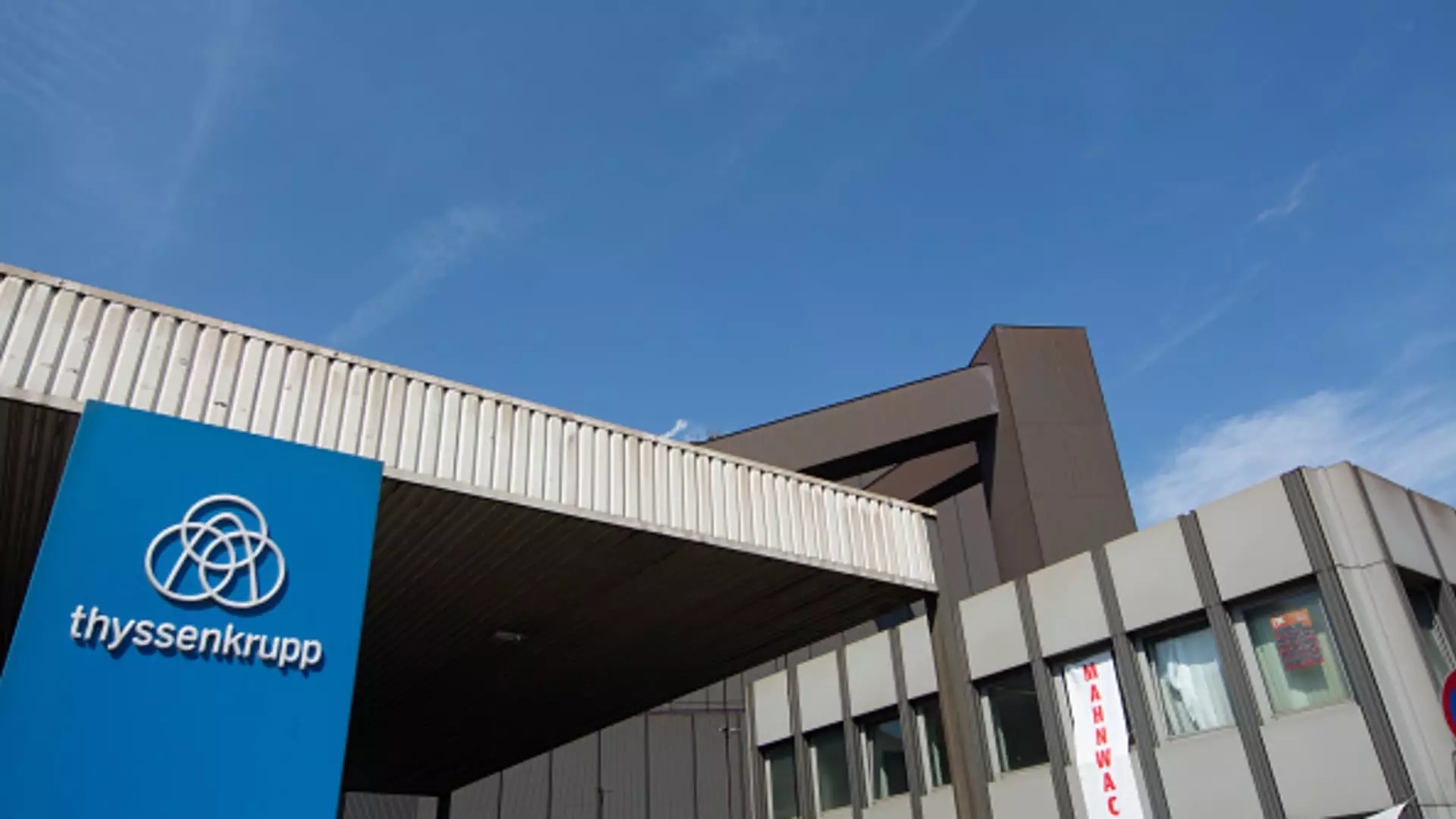In a noteworthy development within the European industrial sector, Thyssenkrupp AG experienced a significant uptick in its share price on a recent Tuesday. The company’s stock surged by 7.9% during morning trading, following the announcement of a narrowed net loss and substantial impairment charges primarily linked to its beleaguered steel unit. The net loss reported for the fiscal year ending September 30 decreased to 1.5 billion euros, an improvement from the previous year’s 2 billion euro loss. This reduction can largely be attributed to asset impairments that totaled approximately 1.2 billion euros, affirming the ongoing challenges within Thyssenkrupp’s steel operations.
Quarterly Figures Indicate Potential Recovery
Analysts were encouraged by Thyssenkrupp’s fourth-quarter performance, which surpassed expectations with adjusted earnings before interest and taxes reaching 151 million euros, against a consensus forecast of 120 million euros. This outcome is critical as it points towards a potential stabilization in the company’s overall financial health. The higher free cash flow in this quarter has enabled Thyssenkrupp to attain a net cash position of 4.4 billion euros, positioning the company favorably as it navigates its restructuring efforts.
Thyssenkrupp finds itself at a crossroads as it seeks to invigorate its operations. CEO Miguel Lopez emphasized the imperative of making strategic decisions, particularly concerning Steel Europe and the company’s Marine Systems division. The ongoing restructuring intends to spin off Steel Europe into an independent entity, with recent developments including the sale of a 20% stake to EP Corporate Group. These moves illustrate Thyssenkrupp’s commitment to not only streamline its operations but also enhance profitability by leveraging market opportunities presented by the transition towards greener technologies.
Despite these positive strides, the broader backdrop remains concerning. Germany’s industrial sector is grappling with a decline in business activity, marked by a fall to a seven-month low in September. Thyssenkrupp’s challenges are reflective of the broader economic climate in Germany, which has recently faced political instability, accompanied by increasing concerns around global demand for industrial goods. The company is currently in discussions regarding state participation to bolster its Marine Systems business, illustrating the pressing need for external support to ensure sustainable growth.
Thyssenkrupp’s recent results suggest a cautiously optimistic outlook as the company attempts to reconcile its past losses with the demands of an evolving industrial landscape. The road ahead is fraught with challenges as the German economy braces for possible downturns, but with decisive strategic moves and a committed focus on innovation and performance improvement, Thyssenkrupp carries the potential for a resurgence in an increasingly competitive market. Continuing to adapt to the shifting dynamics while strengthening its core operations will be vital in overcoming the substantial hurdles that lie ahead.

